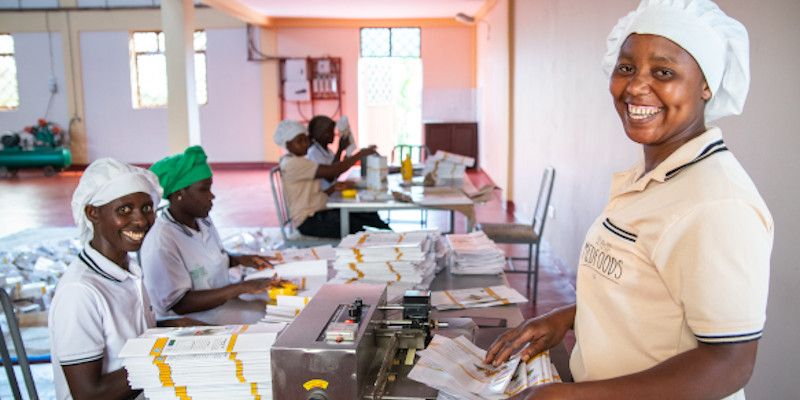
MARKUP Assesses Compliance to EAC and EU Food Safety and Quality Standards
Small and medium-sized enterprises often face challenges in adhering to the stringent food safety and quality requirements of the EU and other international markets. SMEs that are embarking on export can potentially use regional markets as a stepping stone to the more lucrative international markets. In the case of food safety and quality, compliance with certain harmonised East African standards can prepare exporters for the EU market, since the requirements are not that much more stringent.
Compliance with safety and quality requirements is important not only for the health and lives of consumers in the importing countries, but also for consumers in the EAC countries of origin themselves. Food contaminants pose a health risk to consumers, while incorrect labelling can mislead consumers and constrains the proper use and acceptability of products.
Through GIZ, MARKUP recently undertook an assessment of the levels and challenges of compliance, as well as the impacts of non-compliance on the economies in the region.
The study assessed the levels of contamination of selected food products by mycotoxins, pesticides and heavy metals, as well as the technical requirements such as packaging and labelling. The study identified the factors preventing SMEs from converting the challenges of non-compliance into opportunities. Most exporting firms lack the equipment required for testing the compliance of their products with existing standards and thresholds, and they also do not have adequately trained staff. Government agencies often do not provide timely and easily accessible information and have complicated procedures.
Cases of incorrect packaging and labelling were found across all MARKUP priority products. A few samples tested for contamination with pesticides, ochratoxin A, aflatoxins (forms of mycotoxins) and cadmium (a heavy metal) were found to have levels above the current limits set by the EU. This confirms entries in the EU Rapid Alert System for Food and Feed (RASFF) , which has recorded the presence of these contaminants as the main reason for the rejection of products originating from the EAC. The RASFF is an EU mechanism for reporting non-compliant food and feed imports that arrive at the various points of entry. The RASFF alerts authorities in the EU Member States and records the measures taken.
The study showed that all EAC countries have a comparative advantage in all MARKUP priority products in the EU market, while a differentiated picture emerges with the EAC market.
Under various assumptions of simulated impact of non-compliance, the study found that loss in comparative advantage occurs when exports from the EAC are rejected at border posts or withdrawn from the market in the EU region. The loss grows in proportion with the percentage of rejection.
To support efforts aimed at promoting and enforcing compliance with food safety and quality requirements, the study proposes, as a first step, a framework at the regional level to monitor and rapidly report non-conforming food commodities crossing the EAC border points, and a common approach in dealing with the rejected products. Other recommendations include awareness of the importance of compliance, training and capacity building, improved co-ordination, and a harmonized approach to dealing with pesticides and agrochemicals.